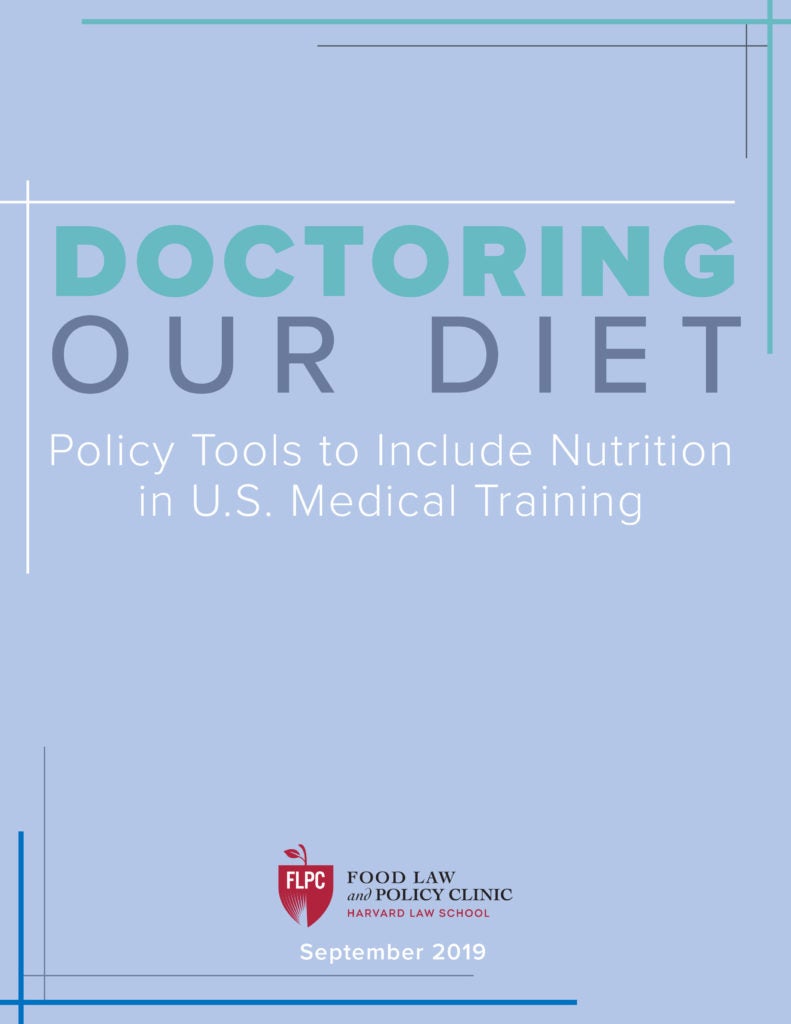
A recent report out of the Harvard Law School Food Law and Policy Clinic (FLPC) calls for greater nutrition education in the medical field, and identifies policy approaches to increase nutrition competency of U.S-trained physicians. Doctoring Our Diet: Policy Tools to Include Nutrition in U.S. Medical Training highlights the current lack of education on diet-related diseases and nutrition that doctors receive over the course of their medical careers. Written by staff and students at the FLPC, the report illustrates the impact of this knowledge gap on healthcare costs and patient health, and provides a number of recommendations for federal, state, and non-governmental policymakers to tackle this issue.
Nutrition plays a critical role in the prevention and treatment of many chronic diseases, and diet is one of the most significant risk factors for disability and premature death in the United States. Leading causes of death include heart disease, cancer, stroke, and diabetes—all of which have a high correlation to poor diet and nutrition. Yet despite the overwhelming evidence linking food with health, nutrition receives little attention in medical school and throughout the education of physicians.
Doctoring Our Diet is the first report to provide actionable policy recommendations to increase nutrition education at every stage of medical training. Focusing on policymakers at the federal and state level, and medical accrediting and testing bodies, the report presents a range of policy solutions to ensure that physicians understand the relationship between food and health and can advise their patients accordingly.
“Despite the overwhelming evidence proving diet is vital to good health, medical professionals receive almost no education on diet or nutrition,” says Emily Broad Leib, director of the FLPC. “Leveraging existing funding sources, such as Medicare, and adopting other policy interventions to require nutrition education throughout medical training can improve outcomes for patients, mitigate the immense costs of preventable diseases, and change healthcare for the better.”
The Harvard Law School Food Law and Policy Clinic (FLPC) serves partner organizations and communities by providing guidance on cutting-edge food system issues, while engaging law students in the practice of food law and policy. FLPC focuses on increasing access to healthy foods, supporting sustainable production and regional food systems, and reducing waste of healthy, wholesome food. For more information on clinic initiatives, visit the FLPC website.
